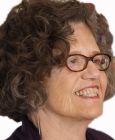Relationships
The Fosters: A Terrific TV Series About an Adoptive Family
Exploring relationships in a lesbian, interracial, open adoption family
Posted January 27, 2015
The Fosters (Mondays on ABC Family) is in the last half of its second season (with a third season starting later in 2015). This show explores the positive and the conflicted relationships in a large adoptive family headed by a racially mixed lesbian couple. Stef is a white police officer with a 17-year-old biological son by her ex-husband and fellow policeman who is still in their lives, while Lena is a black teacher. Their family consists of four teenagers and one middle school son. Jesus and Maria are 15-year-old adopted Latino twins who are occasionally in touch with their birth mother, an addict. Then there are brother and sister, Jude, 10, and Callie, 16, who Stef and Lena are persuaded to take in as foster placements after the death of their mother and their father’s incompetence. Callie’s anger lands her in a home for delinquent girls headed by an effective and warm social worker (delightfully played by Rosie O’Donnell). After her rehabilitation, Lena and Stef take Callie back and decide to adopt both children. This leads to the discovery that Callie has a different biological father than her brother.
Stef and Lena as parents are warm, caring, open, and directive but not authoritarian or overly strict. All the kids are winning, and they demonstrate mutual support. But all of them have problems, some common to teenagers and others unique to an adoptive family. Like any teenagers, there are rivalries between siblings and difficulties with friends and with boy/girl friends. As adoptive parents, however, Stef and Lena have to deal with some specific issues, e.g., the sexual attraction between their biological son and Callie, their foster daughter; the addiction of both Stef’s former husband and that of the biological mother of the twins; and the attempt by Callie’s newly discovered biological father to thwart her adoption and to have her join his family, something Callie doesn’t want. Thus, adoptive parents have to deal not only with their children but with other adults, especially birth parents.
I commend The Fosters writers who document both the difficulties and rewards of an open adoption system and the complicated adult relationships it spawns. The parents are responsive when their children want contact with their birth parents while also protecting them from possible harm. My only criticism is that I wish the writers had added a black or a biracial adoptee to the family.
Tune in, learn, and enjoy.


